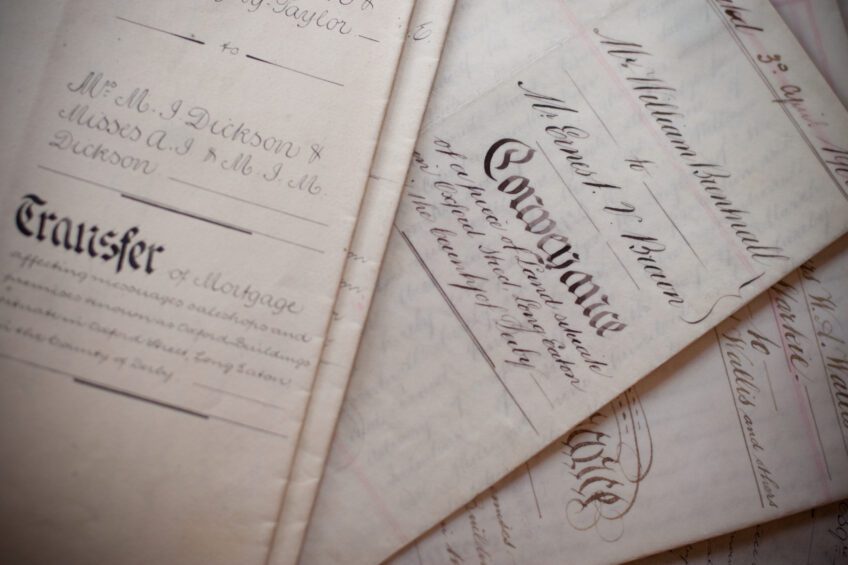It may come as a shock to find out that the dream property you are buying is unregistered but there’s no need to panic just yet, notes Alistair Millar from Tallents Solicitors.
What is land registration?

The Land Registry holds the records for all registered property in England and Wales, recording who the legal owners are, any rights or covenants over the property and any charges or restrictions relating to that property.
Although voluntary land registry was introduced in 1925, it was only the late 1980s that compulsory registration was introduced following a ‘trigger’ event, such as a transfer of ownership, with further trigger events such as the appointment of a new trustee, following in 2002.
However, if none of these trigger events have occurred since those dates then it’s not unusual to find older properties which are still not registered with the Land Registry. In fact it’s estimated that almost 15% of freehold land in England and Wales still remains unregistered. But what does a buyer need to know about unregistered property?
Some of the issues with unregistered property
Unregistered property can slow down the purchase of a property as proof of unbroken ownership over the last 15 years needs to be shown. This can be done through the production of the original title deeds, plans and documents.
If the title deeds cannot be found or have been destroyed, then the conveyancer will need to make a case for registration to the Land Registry with sufficient evidence to prove unbroken ownership. The Land Registry will base their decision on the evidence presented.
 Sometimes the title deeds are not exactly crystal clear when it comes to establishing boundaries. Modern plans will include the scale, a North point and clear delineation of the boundaries with neighbouring properties. If this isn’t the case and doubt exists, then the buyer should ask the current owner to register the property before proceeding to exchange of contract.
Sometimes the title deeds are not exactly crystal clear when it comes to establishing boundaries. Modern plans will include the scale, a North point and clear delineation of the boundaries with neighbouring properties. If this isn’t the case and doubt exists, then the buyer should ask the current owner to register the property before proceeding to exchange of contract.
If someone has used unregistered property without objection from, permission of, or payment to the true owner for an uninterrupted 12 years or more, then they can claim Adverse Possession (also known as ‘Squatter’s Rights) over the whole, or part of the property. Without knowing who the registered owner is, the Land Registry cannot inform them if an application for Adverse Possession is received, leaving the property open to fraudulent claims.
What can I do if my property is unregistered?
The Land Registry’s Property Alert service (https://propertyalert.landregistry.gov.uk/) is one way of thwarting fraudulent transactions as it does add an extra layer of security for property owners. The Land Registry’s system will alert owners to any “significant activity” taken against the property. It is then up to the owner to decide if the activity is expected or potentially fraudulent and act accordingly if it is.
If the property is unregistered then the Land Registry will not have up to date details of the owner to be able to alert them, which could allow the fraudulent activity to proceed.
Additionally, if you as an owner receive the alert and do nothing, the criminals will still be able to proceed with their fraudulent transaction. as in the case of Reverend Mike Hall, who found in November 2021 that his property in Luton had been sold and stripped of his belongings by criminals while he was working away from home.
Final thoughts on unregistered property
Alistair finishes: “If you have all the relevant deeds and documents to prove unbroken ownership, then an unregistered property can be registered after the purchase completes and an electronic record of ownership created called the Office Copy/title to prevent issues regarding ownership in the future.
“However, if you know that your property is unregistered and you are planning on selling, charging or transferring the property in the near future, then we would recommend you register the property sooner rather than risking a delay to future proceedings.



